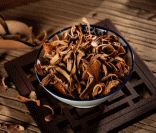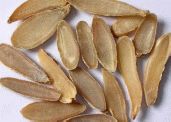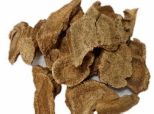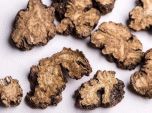
Recently, many patients have inquired: “What causes stomach pain when I get angry?” Traditional Chinese Medicine (TCM) believes that the functional activities of the organs are achieved through the coordination of the rise and fall of Qi. If there are emotional disturbances, inappropriate cold or heat, irregular diet, or overexertion, it can lead to disordered Qi movement, resulting in Qi deficiency, Qi stagnation, and Qi counterflow. If liver Qi stagnation persists, it can affect the spleen and stomach, leading to a disorder in the Qi mechanism of the liver, spleen, and stomach, manifesting as liver Qi stagnation combined with spleen and stomach Qi stagnation, which presents as gastric distension and pain, or pain radiating to the sides and back, frequent belching, etc. The treatment should focus on soothing the liver, regulating Qi, and harmonizing the stomach. Commonly used patent medicines include Qi Stagnation Gastric Pain Granules, Wei Su Granules, Chen Xiang Shu Qi Pills, Shu Gan He Wei Pills, and Yue Ju Bao He Pills, among others.
Qi Stagnation Gastric Pain Granules are composed of Chai Hu (Bupleurum), Yan Hu Suo (Corydalis), Zhi Ke (Bitter Orange), Xiang Fu (Cyperus), Bai Shao (White Peony), and Zhi Gan Cao (Honey-fried Licorice). They have the effect of soothing the liver, regulating Qi, and alleviating stomach pain. They are used for liver Qi stagnation, chest distension, and gastric pain. In this formula, Chai Hu is the monarch herb that soothes the liver and relieves depression, regulating Qi and alleviating pain. Xiang Fu soothes the liver and relieves depression; Bai Shao nourishes the blood, astringes Yin, and softens the liver to alleviate pain, serving as the minister herb. Yan Hu Suo promotes Qi movement, invigorates blood, and alleviates pain; Zhi Ke regulates Qi and harmonizes the middle, dispelling distension. Gan Cao harmonizes the other herbs, serving as the envoy herb. Together, these herbs work to soothe the liver, regulate Qi, and alleviate stomach pain.

Chai Hu

Bai Shao
Wei Su Granules are composed of Zi Su Geng (Perilla Stem), Xiang Fu, Chen Pi (Dried Tangerine Peel), Xiang Yuan (Citron), Fo Shou (Buddha’s Hand), Zhi Ke, Bing Lang (Areca Nut), and Ji Nei Jin (Chicken Intestine). They have the effect of soothing the liver, regulating Qi, and alleviating stomach pain. They are used for gastric pain caused by liver and stomach Qi stagnation, presenting with gastric distension and pain, radiating to both sides, relieved by belching or passing gas, worsened by emotional distress, chest tightness, reduced appetite, and constipation. In this formula, Zi Su Geng enters the stomach, smooths Qi, relieves depression, and alleviates stomach pain; Xiang Fu enters the liver, soothes the liver, relieves depression, and harmonizes the stomach, serving as the monarch herb. Chen Pi regulates Qi, harmonizes the stomach, transforms dampness, and promotes the smooth flow of the spleen and stomach; Zhi Ke breaks Qi stagnation and eliminates accumulation, benefiting the diaphragm and relieving gastric distension; Bing Lang harmonizes the spleen and stomach, promotes Qi movement, and eliminates stagnation, serving as the minister herb. Xiang Yuan and Fo Shou soothe the liver and harmonize the stomach, regulating Qi and alleviating pain; Ji Nei Jin eliminates accumulation and transforms stagnation, serving as the assistant herb. Together, these herbs work to soothe the liver, regulate Qi, and alleviate stomach pain.

Zi Su Geng

Chen Pi
Chen Xiang Shu Qi Pills are composed of Mu Xiang (Aucklandia), Sha Ren (Amomum), Chen Xiang (Agarwood), Qing Pi (Green Tangerine Peel, vinegar-fried), Hou Po (Magnolia Bark, ginger-fried), Xiang Fu (Cyperus, vinegar-fried), Wu Yao (Lindera), Zhi Ke (Bitter Orange, pith removed and stir-fried), Cao Guo (Tsaoko Fruit), Dou Kou (Cardamom), Pian Jiang Huang (Turmeric), Yu Jin (Curcuma), Yan Hu Suo (Corydalis, vinegar-fried), Wu Ling Zhi (Flying Squirrel Feces, vinegar-fried), Chai Hu (Bupleurum), Shan Zha (Hawthorn, stir-fried), Bing Lang (Areca Nut), and Gan Cao (Licorice). They have the effect of soothing Qi, transforming depression, and alleviating stomach pain. They are used for gastric distension and pain caused by liver Qi stagnation and disharmony between the liver and stomach, presenting with distension and pain in the stomach area, pain or stabbing pain in both sides, irritability, nausea, acid reflux, belching, and loss of appetite. In this formula, Chen Xiang and Xiang Fu soothe the liver, regulate Qi, harmonize the stomach, and reduce counterflow, serving as the monarch herbs. Qing Pi, Zhi Ke, Chai Hu, Wu Yao, and Mu Xiang promote Qi movement, relieve depression, soothe the liver, and alleviate distension and pain; Yu Jin, Yan Hu Suo, Pian Jiang Huang, and Wu Ling Zhi invigorate blood, promote Qi, relieve depression, and alleviate pain, serving as the minister herbs. Hou Po, Bing Lang, Cao Guo, Dou Kou, and Sha Ren transform dampness, promote Qi movement, eliminate accumulation, and stop vomiting; Shan Zha promotes digestion and opens the appetite, serving as the assistant herb. Gan Cao harmonizes the properties of the herbs, serving as the envoy herb. Together, these herbs work to soothe Qi, relieve depression, and alleviate stomach pain. It is not suitable to take with ginseng-containing medications; those with deficiency or weak constitutions, as well as children and the elderly, should avoid it.

Chen Xiang

Sha Ren
Shu Gan He Wei Pills are composed of vinegar-fried Xiang Fu, Bai Shao (White Peony), Fo Shou (Buddha’s Hand), Mu Xiang (Aucklandia), Yu Jin (Curcuma), Chao Bai Zhu (Atractylodes, stir-fried), Chen Pi, Chai Hu, Guang Huo Xiang (Patchouli), Zhi Gan Cao, Lai Fu Zi (Radish Seed), Jiao Bing Lang (Stir-fried Areca Nut), and Wu Yao (Lindera). They have the effect of soothing the liver, relieving depression, and alleviating stomach pain. They are used for disharmony between the liver and stomach, presenting with distension in both sides, gastric pain, loss of appetite, belching, vomiting, and irregular bowel movements. In this formula, Chai Hu and Xiang Fu soothe the liver and relieve depression, regulating Qi and alleviating pain, serving as the monarch herbs. Fo Shou and Yu Jin assist the monarch herbs in soothing the liver and relieving depression, regulating Qi, invigorating blood, and alleviating stomach pain; Mu Xiang, Wu Yao, and Chen Pi promote Qi movement, dry dampness, and alleviate pain; Bing Lang and Lai Fu Zi regulate Qi and harmonize the stomach, promoting digestion and eliminating accumulation, serving as the minister herbs. Bai Shao nourishes the blood and softens the liver, combined with Gan Cao to relieve acute pain; Bai Zhu strengthens the spleen, benefits Qi, and eliminates dampness; Guang Huo Xiang transforms dampness, awakens the spleen, and harmonizes the stomach, alleviating nausea, serving as the assistant herb. Gan Cao harmonizes the properties of the herbs, serving as the envoy herb. Together, these herbs work to soothe the liver, relieve depression, and alleviate stomach pain. Caution is advised for women during menstruation, pregnancy, and lactation.

Yu Jin

Guang Huo Xiang
Yue Ju Bao He Pills are composed of Zhi Zi (Gardenia, ginger-prepared), Liu Shen Qu (Fermented Barley, stir-fried), vinegar-fried Xiang Fu, Chuan Xiong (Ligusticum), Cang Zhu (Atractylodes), Mu Xiang (Aucklandia), and Bing Lang (Areca Nut). They have the effect of soothing the liver, relieving depression, and promoting appetite and digestion. They are used for gastric pain caused by Qi and food stagnation, presenting with abdominal distension and pain, a feeling of fullness, reduced appetite, and irregular bowel movements. In this formula, Xiang Fu soothes the liver, regulates Qi, relieves depression, and alleviates pain, serving as the monarch herb. Mu Xiang promotes Qi movement and regulates the middle; Bing Lang and Shen Qu eliminate food stagnation, regulate Qi, and harmonize the stomach, serving as the minister herbs. Cang Zhu dries dampness and strengthens the spleen; Chuan Xiong invigorates blood, transforms stasis, promotes Qi, and alleviates pain; Zhi Zi clears heat and eliminates irritability, serving as the assistant herb. Together, these herbs work to soothe the liver, relieve depression, and promote appetite and digestion.

Mu Xiang

Chuan Xiong
All of the above medicines can soothe the liver, regulate Qi, and harmonize the stomach. Among them, Qi Stagnation Gastric Pain Granules focus more on soothing the liver and relieving depression, Wei Su Granules are stronger in promoting Qi movement, Chen Xiang Shu Qi Pills can also transform dampness and invigorate blood, Shu Gan He Wei Pills are more focused on regulating Qi and harmonizing the middle, while Yue Ju Bao He Pills are more suitable for cases of Qi stagnation with food accumulation.
Pharmacist’s Note These types of medicines are mostly aromatic and pungent, and should not be taken excessively or for prolonged periods; those with Yin deficiency and excess heat, as well as pregnant women, should avoid using them; during medication, avoid anger and overexertion, maintain a pleasant mood, and abstain from alcohol.

Source: Beijing Association of Traditional Chinese Medicine Patent Medicines Professional Committee
Author: Chen Xu, Beijing Sixth Hospital
Edited by: Zhang Peng, Xuanwu Hospital of Capital Medical University
Reviewed by: Lin Xiaolan, Xuanwu Hospital of Capital Medical University
Editor: Wang Xu
Review: Yang Na
Supervisor: Deng Juan

We welcome your submissions, please send to [email protected]

